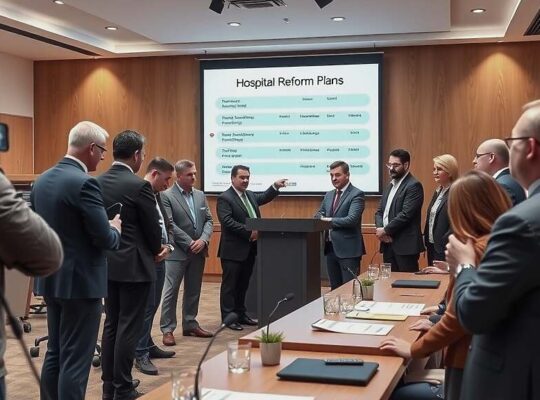The recently announced cost-cutting measures for hospitals, spearheaded by Health Minister Nina Warken (CDU), are falling short of what’s needed to address systemic issues within the German healthcare system, according to Nicola Buhlinger-Göpfarth, chair of the Federal Association of General Practitioners. While acknowledging the immediate stabilization efforts as “welcome” Buhlinger-Göpfarth argues the plan represents a temporary fix rather than a genuine solution to the underlying financial pressures.
The core of the critique centers on the disproportionate allocation of resources. Data suggests that outpatient clinics, staffed by general practitioners, handle 97% of patient cases, consuming just 16% of funding from statutory health insurance funds. In contrast, hospitals, handling only 3% of cases, account for over double the expenditure. “There’s fundamentally enough money within the system” Buhlinger-Göpfarth stated in an interview with the “Rheinische Post”, “but it’s poorly distributed and frequently utilized inefficiently.
The Minister’s plan, Buhlinger-Göpfarth warns, is merely a “short-term emergency program” and will fail to provide lasting stability unless accompanied by more substantial reforms. She echoes a concern frequently raised by Warken herself: without a reevaluation of core cost drivers, the system risks recurring crises.
The call is for “genuine structural reforms” a sentiment underpinned by concerns that delaying such changes will only exacerbate existing problems. The debate highlights a growing tension between prioritizing short-term stability measures and confronting the long-term, complex challenges of resource allocation and efficiency within the German healthcare landscape – a challenge that demands more than superficial cost-cutting and risks perpetuating a cycle of recurring financial strain.












